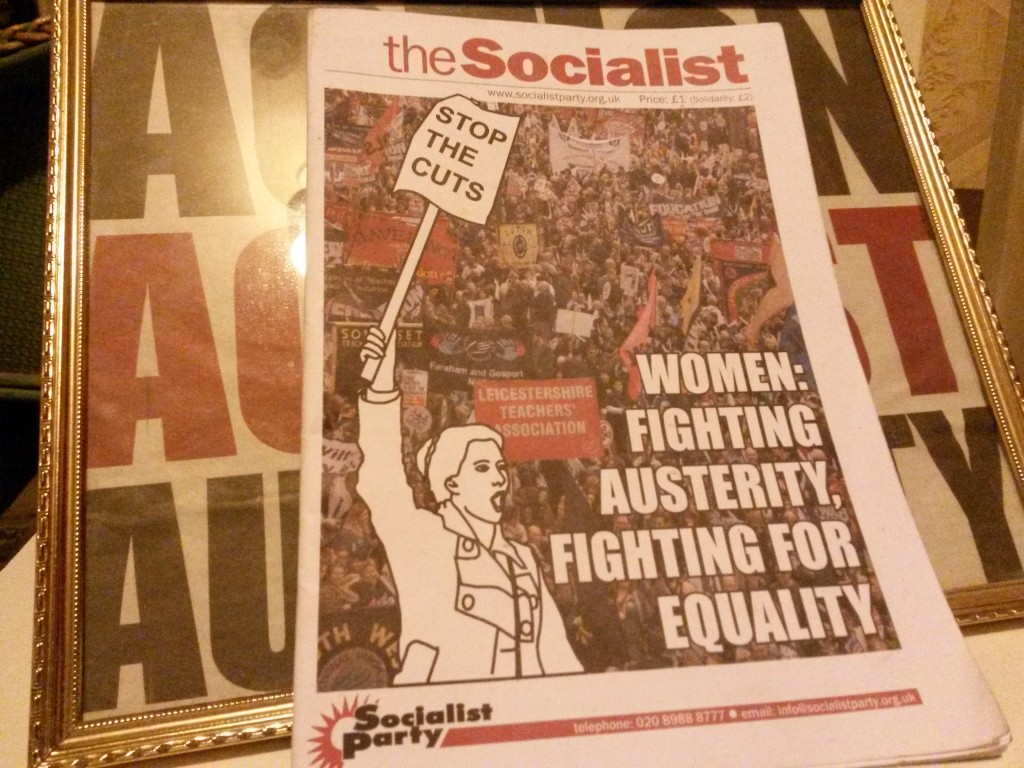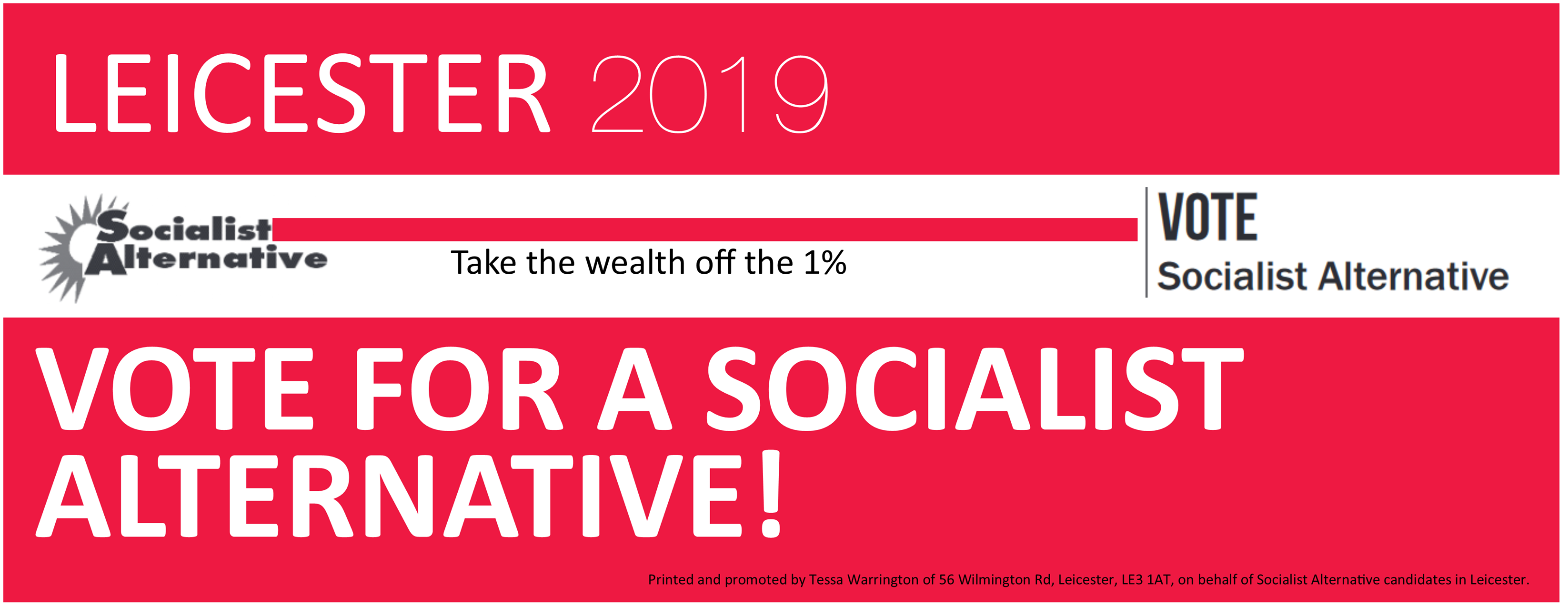National Women’s Meeting
To most, last Saturday was just like any other frosty afternoon in early January. However, in the upstairs of a pub somewhere in London a group of women huddled together to talk about Marxist economics. Unusual? It was the Socialist Party’s national women’s meeting. For one weekend we traveled from far and wide to discuss the challenges facing women under capitalism and the current climate of austerity.
As socialists we understand the class basis for the oppression of women – not with men as the root cause, but rather a system in which women are defined by their reproductive role in society. This is often referred to as the ‘double oppression’ of working women, stemming from both their class and gender. As such we are doubly exploited and doubly disadvantaged. We have less possibility for advancement in the workplace and therefore less possibility for economic independence. This leads women to become financially, and in other ways, dependent upon men resulting in the male control of women within society.
 It’s no surprise then that the idea of working class women discussing politics and economics is unusual when a general lack of education, confidence and support stands in the way of our involvement in these fields. But don’t forget – we are 50% of the population, and being doubly disadvantaged have a higher stake in the fight for a more equitable society. Women therefore have more reason to be involved, not less!
It’s no surprise then that the idea of working class women discussing politics and economics is unusual when a general lack of education, confidence and support stands in the way of our involvement in these fields. But don’t forget – we are 50% of the population, and being doubly disadvantaged have a higher stake in the fight for a more equitable society. Women therefore have more reason to be involved, not less!
As it is, two thirds of public sector workers are women. With the vast majority of unionised workplaces being public sector, women currently make up 54.7% of trade union membership. Whilst the cuts rain down, women are consequently being disproportionately affected with 253,600 women in local government losing their jobs since 2010. We are suffering cuts to benefits as jobs are lost, to childcare services as family incomes are stretched and losing women’s refuges as violence against women is rising. All of this adds up to the huge anger felt by women in Britain today as the gains which were so hard fought for by previous generations are now being taken away. Women’s equality is apparently yet another ‘luxury’ that austerity cannot afford.
On the university campuses and amongst young women we have also seen a huge swell of reaction over the past year against ‘lad culture’ and sexism in the music industry. Campaigns have included over 200 protesting against a tequila bar’s “Freshers Violation” night in Leeds, as well as widespread demands to ban Robin Thicke’s song ‘Blurred Lines’, whose lyrics many read as justifying rape. There has also been massive outcry against victim-blaming in rape cases, demonstrated by protest Slut Walks, as well as growing support for campaigns such as ‘No more page 3’.
The anti-rape movement in India is also growing after recent horrific high-profile cases, whilst women in the Middle East have been playing a visible role in the uprisings against state oppression. This goes to show the increasingly combative mood of women not just in Britain but internationally. There are now great opportunities for our party to engage with the women on these issues, and to raise socialist ideas. The Rape Is No Joke campaign in particular can play a key role in providing an avenue for women angry at sexism and rape culture to get active.
This year’s national women’s meeting was a source of inspiration and affirmation. It showed the capability and commitment of our female members, as well as the wider successes of the women’s movement in the face of stacked odds. Our task now is to make sure this discussion doesn’t remain in the upstairs room of a London pub, but is taken out into our movement by all our members. Women face battles against sexism and discrimination every day, and just as they are blocked within capitalism so we must ensure women are able to play a leading role in the fight for a socialist future.


